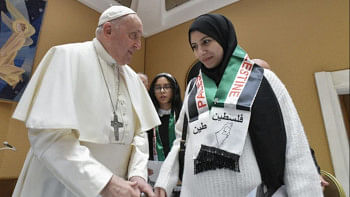Ensure ease of doing business: DCCI
The Dhaka Chamber of Commerce and Industry yesterday proposed that the government form a high-powered monitoring cell to ensure ease of doing business.
Commerce Minister Tofail Ahmed may head the cell, Abul Kasem Khan, president of the apex trade body, said in a meeting with the minister, at the latter's secretariat office in Dhaka.
Khan said private investment needs to be scaled up to 29 percent of the gross domestic product from the current 23.1 percent.
Bangladesh achieved 7.28 percent economic growth and the size of its GDP touched $250 billion in 2016-17. Even then the country's rank in the World Bank's Doing Business 2018 Index has gone one notch down to 177 in 2017, he said.
The country needs at least $15 billion of annual investment in infrastructure development to attract foreign and local investment, he said.
Bangladesh will require $320 billion by 2030 to develop a reliable, sustainable and affordable infrastructure, Khan said.
He said a new export policy for 2018-21 should focus on product diversification, new market development and export growth.
He also proposed for reducing the corporate tax and individual tax rates to give a boost to investors.
The signing of a free trade agreement between Bangladesh and Sri Lanka will be a “learning case” for future bilateral deals with bigger trading partners, he said.
He also urged the government to take up initiatives to integrate Bangladesh with the Association of Southeast Asian Nations (Asean) as well as the Regional Comprehensive Economic Partnership.
The partnership comprises the 10 existing members of Asean and China, India, Japan, South Korea, Australia and New Zealand.
Bangladesh will lose the Generalised System of Preferences from the European Union -- which contributes 54.2 percent of the country's total export earnings -- as soon as the Asian nation graduates from being a least developed country.
Bangladesh will later be eligible for GSP plus benefits in the years to come.
The country needs to take rigorous preparation to qualify for the EU's GSP plus facility by complying with core international standards in the areas of human and labour rights, environmental protection and good governance, Khan said.
He also requested the government to consider providing subsidy in order to match the price of liquefied natural gas with that of household gas.
Because of slow progress, the cost and time for implementation of mega projects are increasing, he said. In order to accelerate the implementation of mega infrastructure projects, he proposed forming a high performing authority titled “National infrastructure development and monitoring advisory authority”.
The export target is $37 billion for the current fiscal year, which will reach $41 billion if the services sector is included, and it will hit $60 billion by 2021, Commerce Minister Tofail Ahmed said at the meeting.
He also brushed aside apprehension that Bangladesh would lose its competitiveness in exports by March, when it would become a middle income country.
He said export earnings would rather increase, as the country has successfully fulfilled the three prerequisites to be a middle income country.
“Our next target after reaching middle income country status will be to sign free trade agreements, preferential trade agreements and regional trade agreements with potential trading partner countries,” he said.

 For all latest news, follow The Daily Star's Google News channel.
For all latest news, follow The Daily Star's Google News channel. 



Comments